McKeown Medical
167 Bath Street, Glasgow, G2 4SQ
When it comes to treating varicose veins, VenaSeal™ has emerged as a revolutionary option that offers a minimally invasive and highly effective solution.
Date posted — 4.10.24
When it comes to treating varicose veins, VenaSeal™ has emerged as a revolutionary option that offers a minimally invasive and highly effective solution.
This innovative treatment involves using a specially formulated medical adhesive to seal off problematic veins, redirecting blood flow to healthier veins and providing relief from the discomfort and unsightly appearance of varicose veins.
Dr Alex Vesey is our expert consultant vascular surgeon who heads up our varicose vein team. Listen to him explain the VenaSeal™ treatment.
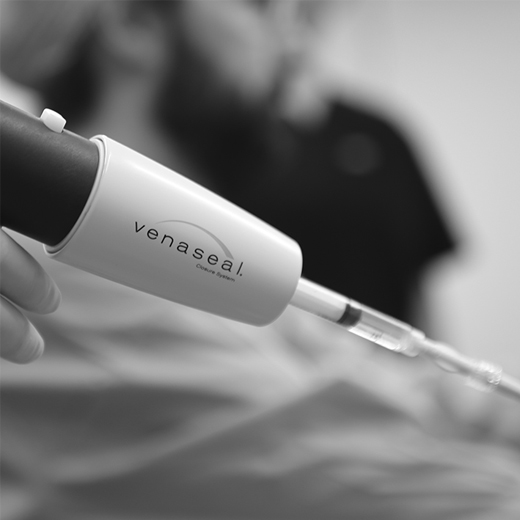
Unlike traditional methods that rely on heat or chemical irritants, VenaSeal™ works by simply bonding the vein walls together, causing the treated vein to collapse and eventually be absorbed by the body. The procedure is quick, usually completed in under an hour, and requires no anaesthetic, making it a convenient and comfortable choice for many patients.
It has already become the gold standard treatment in America, accounting for around 50% of varicose vein treatments in the USA, although its rollout in the UK has largely been limited because there are cheaper alternatives prioritised by the NHS, which has also influenced the private sector in this country – despite VenaSeal™ being a better alternative for most patients. We are the first private clinic in Scotland to offer this procedure.
The VenaSeal™ treatment works by using a specially formulated medical adhesive to seal off varicose veins, effectively rerouting blood flow to healthier veins. The procedure begins with a small, single injection of local anaesthetic. This contrasts with other minimally invasive options like Radiofrequency Ablation or Laser treatment that require a large volume of local anaesthetic to be injected along the entire length of the thigh.
Next, a tiny skin incision is made, and a small catheter is inserted into the affected vein. Using ultrasound guidance, the doctor makes sure that the catheter is in the correct place before they deliver the adhesive along the length of the vein. The adhesive immediately seals the vein walls together, causing the vein to collapse and preventing blood from pooling in that area. Over time, the sealed vein is gradually absorbed by the body, and blood is naturally redirected to other – healthier, functioning veins.
The VenaSeal™ procedure is quick, typically taking less than an hour, and it requires no tumescent infiltration (extensive injections of local anaesthetic), nor does it require the use of heat to burn the vein, which minimises discomfort and allows for a faster recovery.
In contrast to other procedures, VenaSeal™ doesn’t require patients to wear compression stockings afterwards – you simply get up, walk out the door and get back to your normal activities.
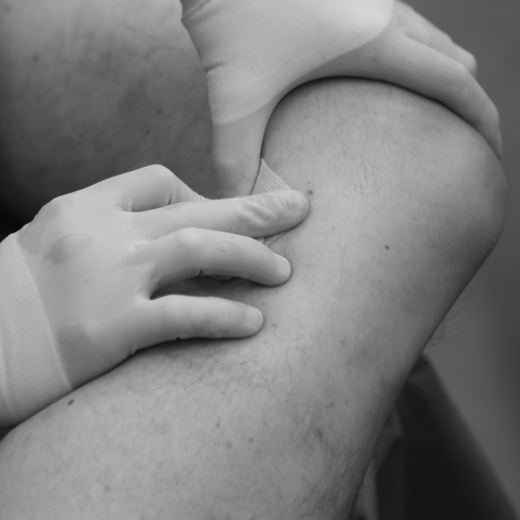
VenaSeal™ offers a number of advantages that make it an attractive option for treating varicose veins. One of the primary benefits is its minimally invasive nature, as it requires no heat, tumescent anaesthesia, or multiple needle injections, which are necessary with other endovenous treatments. This reduces the amount of discomfort and bruising patients experience both during and after treatment. The avoidance of the use of heat also reduces the risk of nerve damage and the extent of bruising.
The procedure is quick, usually completed in under an hour, and patients can return to their normal activities almost immediately, with no need for compression stockings afterwards. Additionally, VenaSeal™ has a high success rate in effectively sealing off problematic veins and providing long-term relief from the symptoms of varicose veins. It is at least as effective in terms of long-term outcomes as other endovenous methods like radiofrequency or laser, and there is some emerging data suggesting that it may even be slightly more effective – despite being less invasive and having fewer risks of common side effects.
VenaSeal™ is considered a safe and effective treatment for varicose veins, with a strong safety profile supported by clinical studies and widespread use. Because it is a minimally invasive procedure that does not involve heat or chemicals, the risks associated with VenaSeal™ are lower compared to some traditional treatments. However, as with any medical procedure, there are potential risks that you should understand before you choose to proceed with treatment.
Although the pain following the procedure is less than after other methods – that doesn’t mean it is pain-free. Most patients experience a bit of soreness or tenderness at the treatment site as well as some mild bruising and swelling. It is common for the vein that has been treated to become swollen, red, hard and lumpy. This is part of the process by which your body gets rid of the diseased veins.
In rare cases, allergic reactions to the adhesive or infection at the incision site can occur. There is also a risk of deep vein thrombosis (DVT), a condition where a blood clot forms in a deep vein. This is a risk with any type of treatment in the leg – in fact, it’s a risk with any injury (accidental or controlled) in the leg. We help to reduce this risk by giving you medicine to thin the blood a little before treatment. We also encourage you to walk around and get back to normal as quickly as possible after treatment which further mitigates the risk.
Overall, VenaSeal™ is a well-tolerated and safe option for most patients. We will discuss all of the risks of treatments as part of your initial consultation and assessment.
If you’d like to find out if VenaSeal™ is the right treatment for you, the first step is to fill out our online consultation form. From there, our team will be able to arrange an initial consultation and ultrasound scan, and we can work together to create a treatment plan that is tailored to your needs.
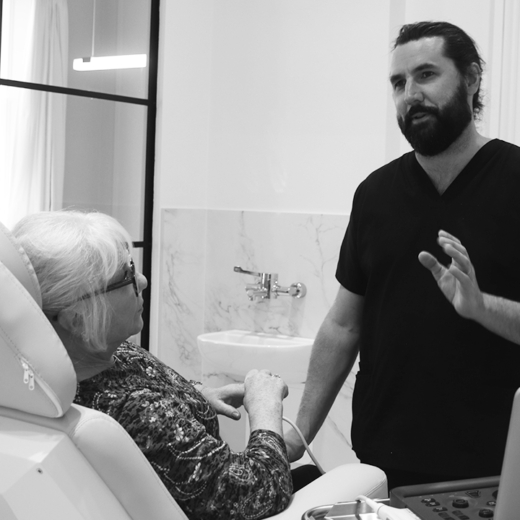
Varicose veins are enlarged, twisted veins that often appear just under the skin, primarily in the legs and feet.
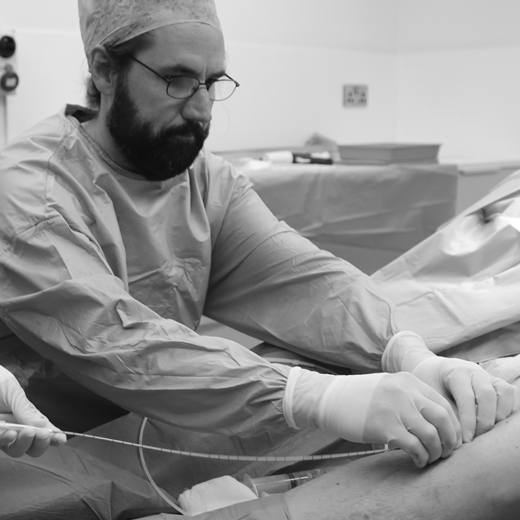
If you're struggling with the discomfort, swelling, or unsightly appearance of varicose veins, Radiofrequency Ablation (RFA) could be the solution...
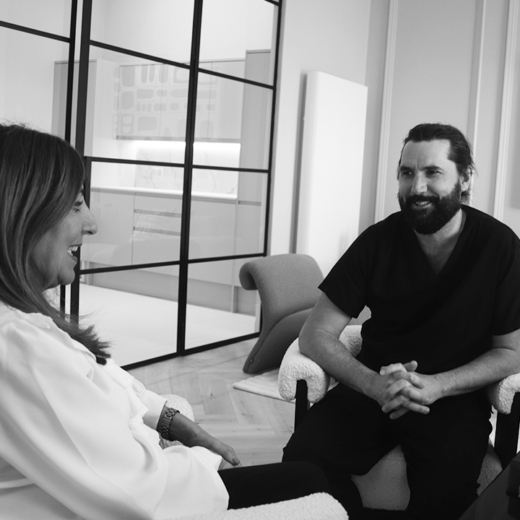
Phlebectomy, or microphlebectomy, is a minimally invasive surgical procedure used to remove varicose veins.
1 / 3
2 / 3
3 / 3

Varicose veins are enlarged, twisted veins that often appear just under the skin, primarily in the legs and feet.

If you're struggling with the discomfort, swelling, or unsightly appearance of varicose veins, Radiofrequency Ablation (RFA) could be the solution...

Phlebectomy, or microphlebectomy, is a minimally invasive surgical procedure used to remove varicose veins.